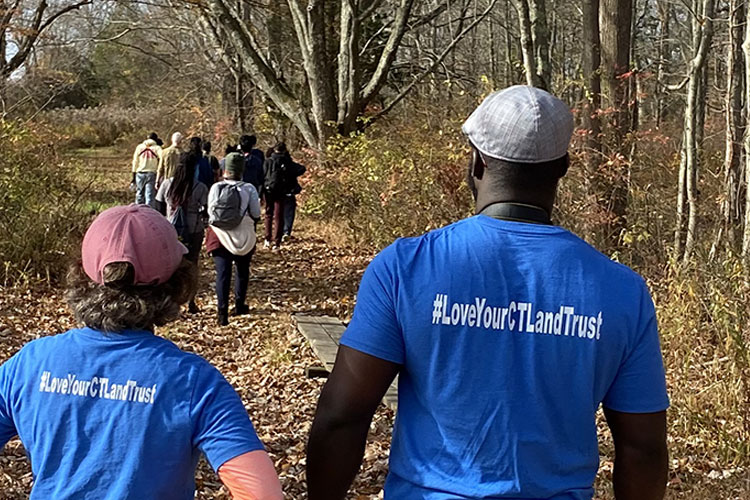Welcome to our comprehensive collection of resources on climate-smart stewardship. Here, you’ll find a diverse array of materials designed to support your journey in understanding and implementing climate-smart practices. These resources range from explanations of what climate-smart agriculture and forestry practices to planning tools like the USFS Tree Atlas and NIACS Adaptation Journal, which offer invaluable insights and guidance for effective stewardship in a changing climate. These resources can be helpful for anyone from seasoned land stewards, to new landowners, or concerned nature lovers.
If you find additional resources that are helpful to you and not located on this page, send them to rbentley@ctconservation.org to add them.
CIRCA has published a new factsheet on the important role Conservation Commissions have integrating climate change resilience into local decision-making processes.
The USDA Forest Service created this guide that includes an Adaptation Workbook process to help land trusts navigate the effects of climate change.
A 2022 report from Highstead explores how New England’s forests are an important climate solution and explores five pathways to increase forests’ impact.
Learn more about the Governor’s Council on Climate Change (GC3), as well as access reports regarding climate change in Connecticut.
The Land Trust Alliance provides tips on ways to effectively communicate about climate change with others.
The Land Trust Alliance and the Open Space Institute created this document to guide land trusts as they discuss climate change issues in their local communities.
In this document the Alliance articulates the important role that land trusts can play in renewable energy development and offers specific guidance on ways that land trusts can participate in this important issue to support improved conservation outcomes in the context of a changing climate.
Assessing whether renewable energy is an appropriate activity is a site-specific question that can only be answered after careful analysis of the conservation values of a given property and in the full context of an individual project. These “practical pointers” help support that analysis.
American Farmland Trust’s mission is to save the land that sustains us by protecting farmland, promoting sound farming practices, and keeping farmers on the land. AFT supports accelerated solar development and believes that, with proper planning and siting, our agricultural lands can also play a meaningful role in hosting solar energy while maintaining active and productive agriculture.
This resource from The Nature Conservancy shares resilient sites in the Eastern US where conservation action is most likely to succeed in the long term.
